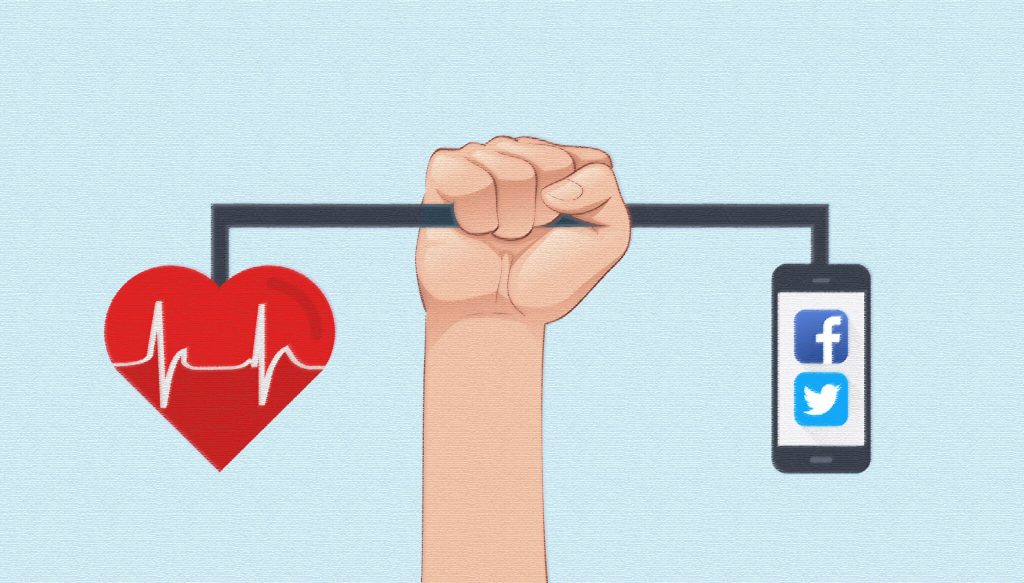After Pulwama Terrorist attack, the flow of information on the web is on full display in Twitter feeds, in Facebook posts, in WhatsApp forwards and in Google trends in the last few days. Social media has been responsible for relevant changes in both personal and community, especially by making it easier for large numbers of people to rapidly share information.
The social media also plays a major role in our health and well-being following a disaster. It can increase happiness and nurture your social circle. But depending on who you are, social media can potentially also make you unhappy and more isolated.
All Right? Campaign
To study the impact of social media on community after a disaster, a well-being campaign was created in 2013 to support people’s mental health and well-being after devastating Canterbury earthquakes in 2010 and 2011. Recently, the research on the impact of that campaign on social media activity was published in the journal of Health Promotion International.
As per the research, A Facebook page All Right? was formed as a means of promoting wellbeing after a major disaster was the aspect of the campaign. Paper co-author, University of Canterbury Associate Professor of Marketing Ekant Veer, of the College of Business and Law, says “The All Right? campaign’s approach to social media ticked all the right boxes. While social media provides a great platform to have a conversation with a community, a lot of the time it can fall flat or feel preachy.”
“What All Right? has shown is that by getting the tone right, tapping into people’s everyday experiences, and alternating between engaging and specialized content, social media can be a force for good.”
For the study, quantitative and qualitative methods to gather the data about the social media component of the All Right? campaign. Findings indicate that the All Right? Facebook page has become a valued source of consistent wellbeing tips and advice -the place that I go’.
85% of respondents to an online survey had taken action as a result of what they had seen on the All Right? Facebook page. Facebook page agreed that the page was helpful (98%), gave people ideas of things that they can do to help themselves (96%), and made people think about their wellbeing (93%).
Assoc Prof Veer said, “The Facebook page goes far beyond simply telling people what’s good for them. It’s led to actual behavior change that is improving the wellbeing of people in Canterbury. The level of behavior change that All Right? has achieved is phenomenal.”
All Right? manager Sue Turner said, “Facebook has helped to open up and normalize conversations about health and wellbeing.”
“Everyone is an expert in their own wellbeing, and Facebook enables us to gather people’s own ideas on what makes them happy, and amplify these wide and far. It’s created a community of people who feel more connected, more accepted and more informed.”
“Facebook is one of many tools All Right? uses to grow to understand how people can look after their wellbeing. Growing emotional literacy can encourage you to do more of the things that make you feel good, improve your quality of life, and help to reduce the need for service-level care.”
“Social marketing can never replace specialist mental health services, but it can play a much bigger role in building resilience and promoting mental health and wellbeing across a population. As the evaluation shows, when done properly, social media can make a really positive difference in people’s lives.”
The social media has manifold application in public health, it has also been used by physicians and other health professionals to achieve important objectives in clinical practice, education and research. Many healthcare inputs and awareness videos on general topics such as vaccine safety provides meaningful advancements to community health.
Social media and Public health – Challenges
Social media has influenced public and personal health spaces recently. The digital platforms should provide the time-sensitive and authentic health information. They should promote to encourage the behavioral changes with proper feedback.
Non-experts share information rapidly to become misinformation. It could be problematic in spreading the rumors after any health crisis or post-disaster. During such crisis, it is very important to control and cater the inputs precisely. There comes the role of public health agencies and organizations. Countering misinformation should be the priority.
In today’s era of mobile apps, we track our personal health records online. Means we tend to reimagine of how we experience our personal health daily. We apply predictive and preventive monitoring’s timely. Moreover, the privacy is questionable in this case. The personal health information should be protected by the digital platforms.
Source: www.techexplorist.com
